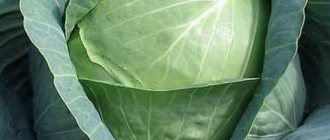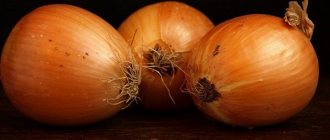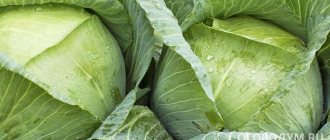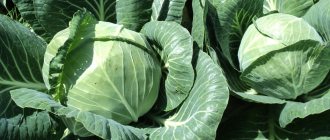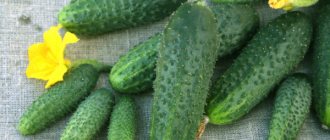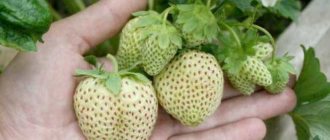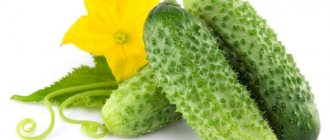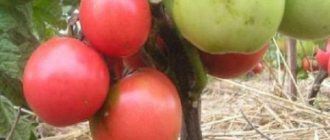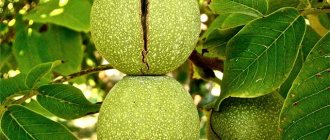One of the most popular agricultural crops is cabbage. This vegetable not only has high taste, but also contains a large amount of useful substances. That is why it takes pride of place in garden beds. White cabbage varieties are especially popular among vegetable growers, one of which is Krautman cabbage.
The popular mid-late hybrid Krautman F1 was bred by Dutch breeders
Characteristics of Krautman cabbage
Krautman cabbage (pictured below) is a mid-season white cabbage variety. The period from germination to harvest lasts 4-6 months. The rosette of the plant is compact in size. Consists of slightly wrinkled, raised smooth leaves of medium size. The edges are even, smooth, the color is rich emerald, with a waxy coating of medium to strong intensity. The inner leaves are thin, delicate, light in color (lighter than the outer ones). The inner stalk is the same length as the outer one. The average weight of heads of cabbage is about 1.8-4.5 kg. Some specimens grow up to 6-7 kg.
The head of Krautman cabbage is half-covered, medium in size, round in shape, dense in structure
The heads of cabbage have an attractive appearance, do not crack in any weather conditions, and do not rot. They are stored for a long time after ripening on the root and are perfectly transported over long distances without loss of taste. The hybrid also adapts well to any weather conditions.
Landing
Seeds for seedlings are sown from the 2nd decade of April. They are completely ready for planting and do not need processing. Sowing in open beds is carried out from early to mid-May. Seedlings are covered with polyethylene before germination, maintaining a temperature of 20-21 degrees.
How to care for seedlings:
- fertilizing to stimulate growth (Agricola, Rostmoment);
- irrigation with warm water;
- additional lighting (total day length up to 12 hours);
- diving with 1-2 leaves;
- hardening on the eve of transplantation.
Advantages and disadvantages
Advantages of the Krautman hybrid:
- high productivity;
- friendly return of the harvest;
- the heads of cabbage do not rot or crack;
- excellent presentation;
- heads of cabbage can remain in the beds for a long time after full ripening;
- good transportability over long distances;
- excellent keeping quality;
- immunity to fungal diseases;
- easily adapts to a variety of weather conditions.
Disadvantages of the variety:
- weak root system, which leads to the plant falling on its side, under the weight of ripening heads of cabbage;
- lack of resistance to clubroot.
Reviews about Krautman
This hybrid of Dutch selection appeared in the Russian Federation not long ago. But during this time, many farm owners and amateur summer residents have already fallen in love with it. Therefore, reviews of the Krautman hybrid can only be found laudatory.
Antonina Arkadievna, Tobolsk
I have been growing Krautman for several years in a row. I don’t know of a more problem-free cabbage. Grows well. The heads of cabbage are pouring to perfection. All are plump and even. It’s nice to look at them both in the garden and in the basement. Cabbage stores wonderfully. I'm cleaning it up in October. I make a little sauerkraut every month. Very tasty in fresh salads. All in all. I have already recommended Krautman to all my friends, and I know that they are only thanking me for the advice.
Heinrich, Tolyatti
Krautman is a great variety. Consider it growing on its own. Does not crack from rain or drought. If the weather is bad, small heads of cabbage may appear. But if you consider that I grow only for my family, and give a little to my children, then the size of the heads of cabbage doesn’t really bother me. The main thing is that it grows and forms dense forks, and the rest is nonsense. But you don’t have to poison cabbage every 2 weeks from various misfortunes.
Planting and caring for Krautman cabbage
To plant Krautman cabbage, you need to choose areas with loose, fertile loamy soil. They should also be well lit. The hybrid can be grown in seedlings and by direct sowing in the ground. The planting method depends on the weather conditions of the region where the vegetable plant is cultivated.
Planting seeds directly into open ground can be done in warm climate regions. In this case, it is necessary to wait for the soil to completely warm up to 14-15 ° C. At the same time, at night the air temperature should not drop below 16-18 °C.
In regions with cold climates, it is recommended to grow Krautman cabbage using seedlings. At the same time, pre-grown and strengthened seedlings are planted in closed or open ground. Approximately, the seedling is ready for transplantation at the age of 35-45 days.
It is recommended to sow seeds in early April. You can use wooden boxes for planting, which must be filled with soil. The seeds are sown in specially prepared grooves, to a depth of 1 cm. The recommended distance between seeds is at least 3 cm. The grooves are covered with earth on top, compacted and watered. The crops are covered with film and placed in a warm, bright place. After the shoots emerge, the film is removed. In the phase of 2 true leaves, you can pick. Before planting in open ground, seedlings must be hardened off.
Advice! The air temperature in the room where seedlings are grown should be at least 12-15 °C.
It is recommended to plant seedlings at the end of May. The layout of the seedlings is 50 x 50 cm.
Step-by-step planting of Krautman cabbage seedlings:
- Water is poured into the previously prepared wells.
- The roots are placed in them.
- Sprinkle with soil up to the first pair of leaves.
- Compact the soil around the seedling.
- Water a little on top.
In the first few days, it is recommended to shade the seedlings, thereby protecting them from direct sunlight, which negatively affects survival rate.
It is necessary to care for the Krautman hybrid traditionally, just like other varieties of cabbage. Recommended care procedures include:
- watering;
- loosening;
- hilling;
- fertilizing
It is recommended to carry out the first watering with a solution of potassium permanganate (light pink). In the future, the cabbage is watered once a week. Water consumption – 12 l per 1 m2. Watering is especially important for plants in the first period after planting, during the active growth of green mass and the rapid setting of heads of cabbage.
The first feeding should be carried out 21 days after transplanting the seedlings. Mullein solution can be used as a fertilizer. It is recommended to repeat the procedure after 14 days.
It is necessary to feed cabbage at the second stage of the growing season, adhering to the following rules:
- The amount of potassium and phosphorus fertilizers applied to the soil is doubled.
- Fertilizing with nitrogen is carried out twice as often.
Important maintenance activities are weeding, loosening and hilling. These procedures contribute to the formation of a powerful root system and increased productivity.
History of variety development
The seed company Bejo Zaden, located in the Netherlands, sells vegetable seeds, as well as develops new varieties and hybrids of various vegetables. This company is known to farmers all over the world and has its representative offices almost everywhere. According to employees of this company, they are not known only in Antarctica.
The variety was bred by Dutch breeders in the last quarter of the last century, and was included in the State Register of Russia in 1993. This hybrid is zoned and intended for cultivation in almost all regions of the country. It is grown by farmers in Ukraine and Moldova.
Diseases and pests
The Krautman variety is highly resistant to fungal diseases. The plant has weak immunity to diseases such as:
- Blackleg. The spread of the disease can be prevented by pulling out infected seedlings and removing them. The soil is treated with a solution of Bordeaux mixture (1%) and copper sulfate (5 g per 10 l of water).
Appears as black areas on plants; over time they die - Kila. Characteristic signs are yellowing and wilting of plants. Affected foliage must be removed and the soil sprinkled with lime.
To prevent clubroot, seedlings can be treated with wood ash.
Pests that threaten Krautman cabbage include:
- cabbage fly;
- cruciferous flea beetle;
- cabbage whites.
Tips and reviews from experienced gardeners
Reviews from gardeners about the white cabbage hybrid Krautman F1 are positive. They note the good taste of the vegetables and ease of growing.
Larisa Zhukova, Cherepovets : “I read the description of the Krautman cabbage variety and decided to plant it, but then abandoned it, since the crop suffers from clubroot. Although the vegetables have excellent taste, they are suitable for cooking and for fermenting. The plant is easy to care for."
Oleg Smirnov, Kiev: “The hybrid’s heads of cabbage are dense and do not crack even during long-term storage. My cabbage lasts until mid-April. During periods of prolonged rain, I cover the soil with straw, changing it every day. This helps avoid water stagnation at the roots.”
Application
The Krautman hybrid is suitable for fresh consumption, preparing salads and other dishes. Can also be used salted and pickled. The variety has high taste and many beneficial properties. The leaves of the hybrid are juicy, crispy, sweet, and contain large amounts of vitamin C and A. A ripe head of cabbage contains 7.3% dry matter and 4% sugar, so it is excellent for pickling. 100 g of cabbage leaves contains about 46 mg of ascorbic acid.
Comment! In terms of the content of vitamins and other useful microelements, the Krautman hybrid is ahead of cauliflower.
Harvest and storage
The harvest is harvested in dry, sunny weather using agricultural machinery or by hand. This is done 120–140 days after planting the plants in open ground.
Storage features and keeping quality of the Krautman hybrid
In a room with a temperature of +1...+2°C and high air humidity (90–95%), cabbage is stored until the end of March without loss of taste. Good ventilation and no bright lighting are important.
Description
The leaf rosette of Krautman F1 cabbage is raised and compact. The leaves are medium in size. They have a rich waxy coating and green color. There is wrinkling on the leaves. The edges are smooth and even.
A ripe head of cabbage has a round shape. It is dense, with a thin internal structure, semi-closed. The weight of individual specimens can be from 1.5 to 4 kg. When cut, the head of cabbage is snow-white. The outer and inner stalks are the same length, medium size. The forks are level and resistant to cracking.
High-yielding hybrid Aggressor F1
The white cabbage hybrid Aggressor is a mid-late crop. It stores well and gives an excellent harvest. Read more…
The purpose of cabbage is to use it fresh, canning, pickling and pickling.
Subject to simple conditions and growing rules, from each square. m you can harvest up to 9 kg of crop.
You can store collected vegetables for up to 4 months. During this time, they do not lose their taste and presentation.
Growing seedlings
The variety is grown mainly by seedlings. Cultivation should begin in the first ten days of April. To do this, you must first prepare wooden boxes or other suitable containers and fill them with soil saturated with nutrients. Shallow grooves (no more than 1 cm) are cut along the surface of the soil and the seeds are placed in them at a distance of about 3 cm from each other. The planting material is sprinkled with earth, compacted a little and spilled. The box is covered with polyethylene film and placed on the windowsill.
After 5-7 days, the first shoots usually appear above the soil surface. The entry of seedlings into the phase of two true leaves signals that it is time to pick. The procedure involves transplanting seedlings from a box into separate containers.
Before transplanting plants into open ground, it is necessary to carry out a hardening process on them. For this purpose, containers with seedlings are taken outside for a while so that they get used to the sun and wind. At first, the seedlings are kept indoors for a short time, gradually increasing it.
Advantages and disadvantages of a hybrid
Heads of cabbage do not rot, can remain on the root for a long time, and can easily be transported in vehicles to the point of sale. Krautman is not afraid of pests, is not susceptible to diseases, and guarantees a large harvest:
- with sudden temperature changes during the growing period;
- in different regions of Russia - from southern to northern;
- under unfavorable climatic conditions;
- in growing conditions in dense beds.
The crop ripens simultaneously, which simplifies the collection, transportation and processing of vegetables. The variety is universal. Cabbage is consumed raw, used for pickling and pickling.
The Dutch hybrid requires some effort in the first stages of its cultivation. The vegetable should develop a good root system. This can be achieved through:
- regular hilling of agricultural crops;
- periodic watering;
- applying mineral fertilizers;
- weeding as necessary and loosening.
The seedlings should not be allowed to stretch out. Therefore, cabbage is planted in well-ventilated, unshaded areas.
Another disadvantage of the variety is the relatively short storage time of the crop. But this disadvantage is inherent in almost all mid-late varieties of cabbage.
How to care
The first time watering is carried out using a slightly pink solution of pharmaceutical potassium permanganate. And further irrigation is performed once a week. Approximately 12 liters of liquid will be consumed per 1 m2. Watering cabbage during the post-precipitation period and during head formation is very important.
Feeding
After 3 weeks from the moment of planting the seedlings, it is necessary to apply the first fertilizing. For these purposes, a solution of mullein is used.
To prepare it, you need to take 1 kg of fertilizer and 10 liters of water. Perform the same fertilizing after 14 days. For cabbage, the use of wood ash will be an excellent fertilizer and pest prevention. Use it to dust. 250 g of ash will be needed per 1 m2.
Loosening and weeding
These events are extremely important for the full growth and development of seedlings. Thanks to loosening, it is possible to saturate the root system of the plant with oxygen and moisture. Perform this procedure carefully and not deeply, so as not to damage the roots. Loosening should always be carried out after watering or frequent rains, avoiding the formation of a crust. But how to care for broccoli, and what are the best varieties for Siberia, is indicated
The video shows the process of loosening cabbage:
Diseases and pests
Krautman cabbage can be affected by various ailments and parasites throughout the growing season. In order to detect a defect in time and eliminate it, you need to know what misfortunes to expect:
- Blackleg. This fungal disease can be identified by how the affected area turns black, becomes thinner and rots. The plant can be removed from the soil very easily. To combat the disease, it is necessary to treat the lesion with 1% Bordeaux mixture, a solution of copper sulfate (10 liters of water and 5 g of the product). All affected plants should be removed and burned. Black leg of cabbage
- Kila. With such a defeat, the bushes stop growing, and their leaves turn yellow and wither. To prevent the development of this disease, wood ash will have to be added to the soil. Kila
- Cruciferous flea beetle. Holes form on the surface of the leaves, which can cause them to die. To eliminate the pest, you will have to treat the plant with an infusion of chamomile, tobacco or garlic. But what the stone head cabbage looks like is described in this video. Cruciferous flea beetle on cabbage
- Cabbage fly. The plant begins to grow very slowly, its leaves fade and become lilac-purple. To combat the disease, you need to treat the plant with burdock infusion. But remove the larvae yourself. It will also be useful to know what the Transfer cabbage variety looks like. Cabbage fly
- Cabbage whites. It gnaws the foliage and can reach the inside of the heads of cabbage. To protect the plant from the parasite, it is necessary to plant it with crops such as tomato, garlic and dill. Remove pest larvae yourself. But this article will help you understand what Lennox cabbage looks like and how difficult it is to grow it. Cabbage whites
